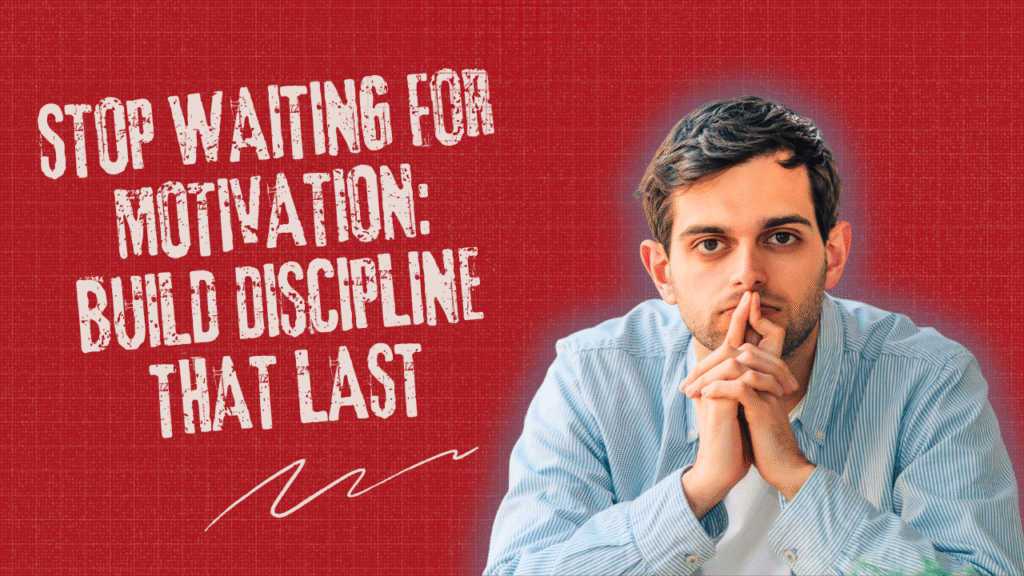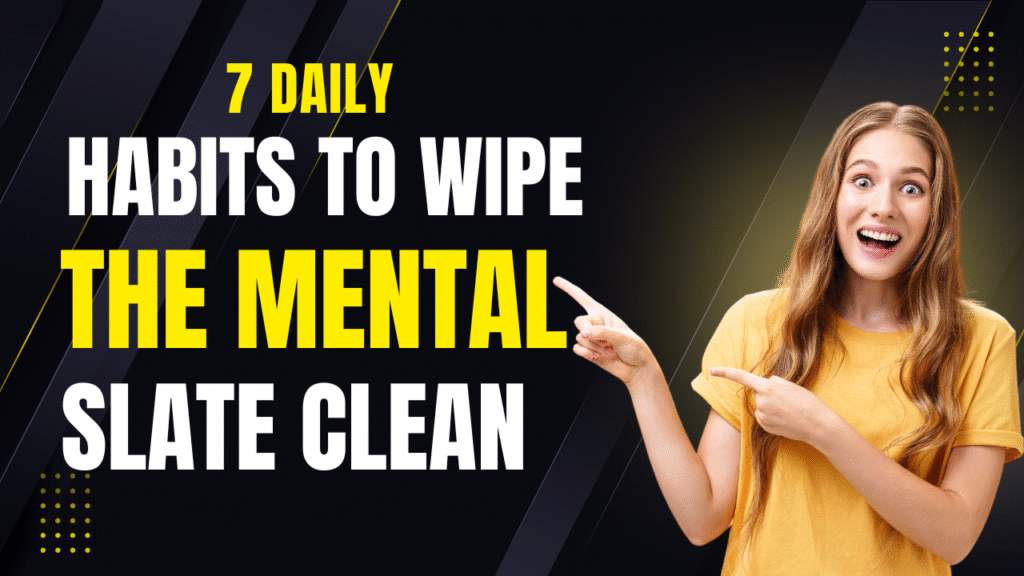Let’s be real — if discipline only happened when you felt like it, none of us would have it. You’d work out when you were “in the mood,” eat healthy when you “had the energy,” and tackle that big project when “the timing felt right.” Translation: you’d never do any of it.
Motivation is a sugar rush. Discipline is the slow-burning fuel that actually gets you somewhere. And the sooner you stop waiting for the first one, the sooner you can start building the second.
Motivation is a terrible business partner.
Sure, it’s fun when it shows up. You get that rush of energy, your playlist is on point, and suddenly you’re ready to organize your whole life. But the moment it gets bored — poof — it’s gone. And you’re left sitting there, staring at the mess, wondering what happened.
Discipline, though? That’s the friend who still shows up at 6 AM in the rain because you agreed to meet. It doesn’t care about the weather, your mood, or whether Mercury is in retrograde. It just shows up. Every. Single. Time.
Start by lowering the barrier.
A lot of people fail at discipline because they try to go from zero to Navy SEAL overnight. “From tomorrow, I’m waking up at 4:30, running 10 miles, reading three books a week, and meal prepping every Sunday.”
Here’s what really happens: Day one is great. Day two… you snooze the alarm. By day four, you’ve ordered pizza and “accidentally” binged a whole season of something.
Discipline grows in tiny, stupidly simple steps. Want to get up earlier? Start with ten minutes earlier, not two hours. Want to read more? Open the book and read one paragraph. Small wins snowball. Big leaps usually faceplant.
Attach it to something you already do.
New habits stick better when they piggyback on old ones. If you already make coffee every morning, use that moment to write your day’s top three priorities. If you already scroll your phone before bed (you do, don’t lie), swap five minutes of that for stretching.
Think of it as discipline hitching a ride with something that’s already on autopilot.
Make it automatic before you make it bigger.
Here’s the trap: you start strong, then you “upgrade” too soon. You’re two weeks into going for a daily walk, so you decide to add weight training, cut carbs, and start meditating for 30 minutes.
Boom. Overload. The whole thing collapses.
The rule? Keep it easy until it feels weird not to do it. Only then do you add more. Discipline isn’t built by cramming your schedule full — it’s built by making one thing non-negotiable, then stacking the next thing on top.
Remove the decision-making.
Every time you leave a choice open, you give procrastination a way in. “Should I work out today?” is a ridiculous question — it’s an invitation to negotiate with yourself, and you’re a very convincing lawyer when it comes to excuses.
Decide once. Put it in the calendar. Make it so automatic that it’s just “what you do.” You don’t ask yourself if you’ll brush your teeth. You just brush your teeth. Same idea.
Discipline is not about perfection.
You will miss days. You’ll have moments where you break your own rule. The danger isn’t in missing once — it’s in letting the miss become the new habit.
One skipped workout? No big deal. Two skips in a row? Now you’ve got momentum in the wrong direction. The trick is to catch yourself early and get back in without the whole guilt-shame spiral.
Play the long game.
People get discouraged because discipline feels slow. It’s not as flashy as a big motivational surge. It’s repetition, showing up, doing the thing when no one claps for you. But that’s exactly why it works — because it’s boring.
Boring is reliable. Reliable compounds. And compounded effort beats occasional heroics every time.
Use friction to your advantage.
Make the good habits easier and the bad habits harder. Want to work out? Lay out your clothes the night before. Want to eat better? Keep junk food out of the house.
On the flip side, if you’re trying to break a bad habit, add steps to make it annoying. Put the TV remote in another room. Delete social media apps from your phone. If doing the wrong thing takes effort, you’ll do it less.
Don’t confuse discipline with self-punishment.
Some people think discipline means living like a monk and stripping all joy out of life. That’s not discipline — that’s misery. Real discipline is choosing what matters to you and building the habits that protect it.
If you’re disciplined about your health, you can enjoy that dessert without spiraling. If you’re disciplined about your money, you can take the trip without drowning in debt. Discipline gives you more freedom, not less.
Anchor it to your identity.
Here’s the strongest lever you have: stop telling yourself, “I’m trying to be disciplined.” Start saying, “I’m the kind of person who…”
“I’m the kind of person who runs three times a week.”
“I’m the kind of person who writes every morning.”
“I’m the kind of person who keeps promises to myself.”
When it’s part of who you are, it’s harder to break — because breaking it means contradicting your own identity.
The bottom line? You’re not waiting for the right mood anymore. You’re building the muscle that works without it.
And maybe the next time you think, I’ll start when I feel like it, you’ll hear that tiny voice in your head say, No… we start now.



